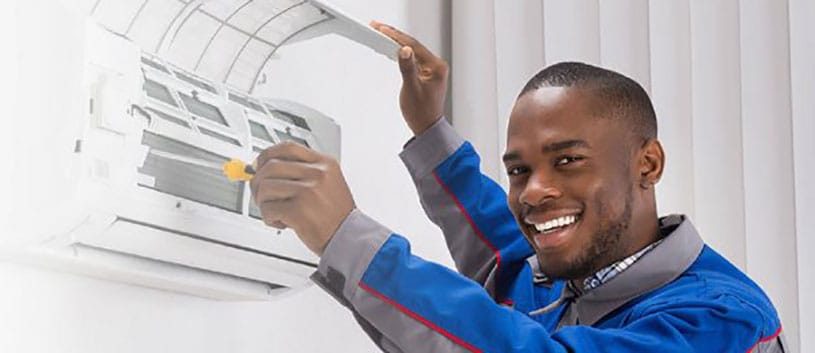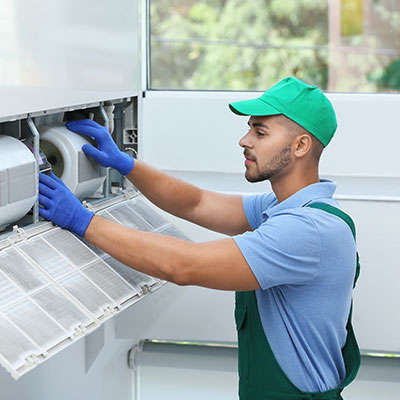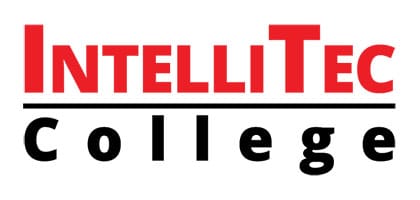Get the Skills to Be a Professional Refrigeration & HVAC Technician

18 Month* Hands-On Refrigeration & HVAC Technician Training Program in Grand Junction, Colorado
The Refrigeration and HVAC Technician program is designed to give you the confidence and skills you need to succeed in your new career.
At IntelliTec College Grand Junction, you’ll learn how to install, maintain and repair heating, ventilation, air-conditioning and refrigeration systems. You’ll also build professional customer service skills that will benefit your future success.

Refrigeration & HVAC Technician
$53,080 median annual salary***
- 30% Job Growth Over Next 10 Years
- Graduates hired by plumbing, heating, & air-conditioning contractors
- 2 Certification Tracks (Including Mechanic IV Licensing & EPA)
- Advance into HVAC Engineering, Project Management, Wholesale Trade and much more!
*** https://www.onetonline.org/link/localwages/49-9021.00?st=CO&g=Go visited on November 26, 2020. Salary source for heating, air conditioning, and refrigeration mechanics and installers in Colorado with lowest 10% earning $34,020 to the highest 10% of workers earning $78,110.
What Does a Refrigeration & HVAC Technician Do?
Heating, ventilation, air conditioning and refrigeration mechanics and installers—often referred to as HVAC-R Technicians—work on heating, ventilation, cooling, and refrigeration systems that control the temperature and air quality in buildings. They may use blueprints or specifications to install or repair HVAC-R systems, inspect and maintain HVAC-R systems, and repair or replace worn and defective parts. Technicians may also connect systems to fuel and water supply lines or install electrical wiring and controls.
Grand Junction HVAC-R Job Opportunities
- Refrigeration Technician
- HVAC Service Technician
- HVAC Control Technician
- HVAC Mechanic or HVAC Installer
- Heating Equipment Technician
- Facility Maintenance Technician
- Environmental Maintenance Technician
- and more!
This school has helped me get my career started and find my dream job.
Is a Professional Trades Career Right for You? Take the IntelliTec 'Trades Career Training Readiness Quiz'
This fun, online quiz takes 3-minutes to complete and you’ll get a personalized report. Identify your strengths and social style plus the training and positions you’re best suited for. Get Your Trades Career Training Readiness score now >>
Refrigeration & HVAC Technician Salary Potential
IntelliTec Grand Junction provides career-training programs for entry-level positions. Salaries vary depending on geographic location, economic conditions, and willingness to relocate. Salaries by occupation and specific location can be found on the O*NET website. National figures for labor market activity, working conditions, and price changes in the economy are available from the Bureau of Labor Statistics. You can also visit the campus career services department to learn where IntelliTec College graduates work and the beginning salaries in their respective careers.
How Is the Job Outlook for the Next 10 Years?
According to the US Department of Labor, job opportunities for qualified applicants with computer and electronics familiarity and good troubleshooting skills will have the best opportunities as employers continue to have difficulty finding qualified technicians to install, maintain, and repair complex new systems.
When Do HVAC-R Technicians Usually Work?
The average HVAC-R Technician works 8 hours a day during normal working hours (approximately 8:00 am – 4:00 pm or 9:00 am – 5:00 pm). During extreme weather patterns, most HVAC-R techs are offered overtime hours during nights and weekends.
Get All the Important Details
Associate of Occupational Studies Degree in Grand Junction
The Refrigeration & HVAC Associate of Occupational Studies Degree program in Grand Junction is designed to develop the skills and knowledge for entry-level employment as an HVAC-R Technician in the commercial, residential, or industrial refrigeration and heating industry. Graduates are prepared to sit for Mechanic IV Licensing, EPA Certification, and additional certifications.
Locations:
Program length: 18 Months*
Hands-on skills students learn in the classroom and lab settings include:
- Installation and operation of electrical controls operation
- Maintenance & repair of residential & commercial heating and air systems
- Refrigerant recovery and evacuation
- Operation, maintenance, & repair of commercial refrigeration systems
- Diagnosis of pressure sensing devices of programmable control systems and the diagnosis of mechanical control systems
- Troubleshooting of chilled-water systems & water tower systems & pumps
- Customer service and professional confidence Installation of domestic & commercial water heaters & HVAC systems
- Combustion analysis and blueprint reading
Refrigeration & HVAC Technician Program Gainful Employment Disclosures: Colorado Springs | Grand Junction
Here’s what will you learn in the Associate of Occupational Studies Degree program:
Is Hands-On Training for a Career as a Refrigeration & HVAC Technician in Grand Junction Right for You? Get More Info…
If you’re interested in exploring whether IntelliTec Grand Junction’s educational training programs for career opportunities in the Refrigeration & HVAC industry are right for you, fill out the form on this page to receive more information.
A helpful IntelliTec College Admissions Representative will be happy to answer any questions you have about IntelliTec Grand Junction and can help with everything from determining the right career path for you to discussing financial aid options.
*Program length when completed as designed.
